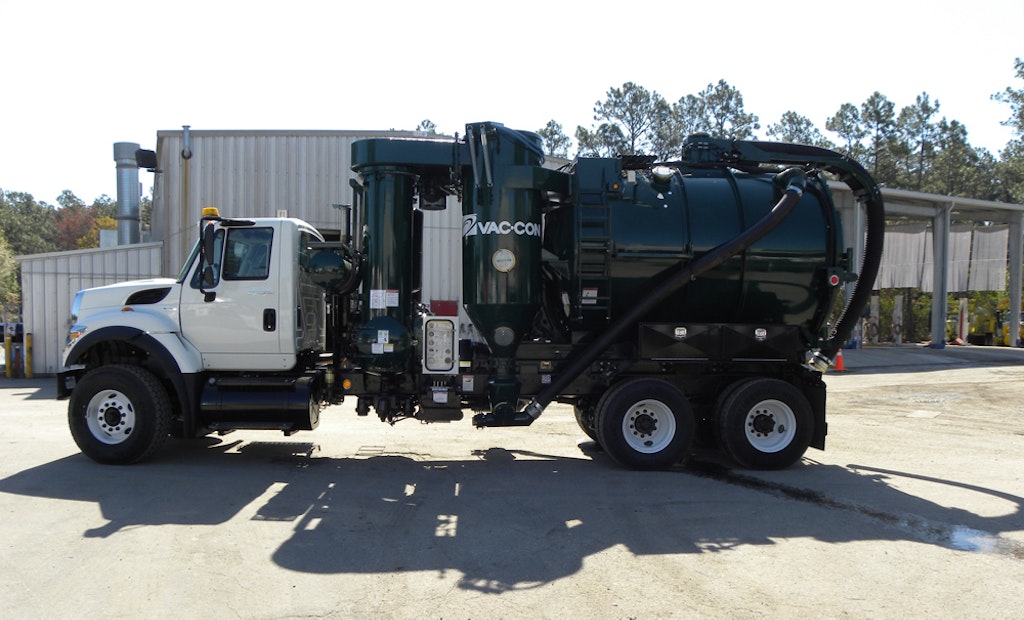
Interested in Plumbing?
Get Plumbing articles, news and videos right in your inbox! Sign up now.
Plumbing + Get AlertsCombination trucks, hydroexcavation units, industrial vacuum loaders; there are plenty of machines to pick from when it comes to vacuum machines. The right one for your company will depend solely on what you plan to do with it, according to W.W. (Bill) Akins, of vacuum truck manufacturer Vac-Con in Green Cove Springs, Fla. He says the main differences are the apparatus used to move the air and the filtration system.
Combo and hydroexcavation trucks are designed to move wet and slurry material such as in cleaning sewer lines, storm drains, and catch basins using high-pressure water and a centrifugal vacuum system. “Not all material is wet and there is a need for a machine that is capable of not only vacuuming wet material but also dry powdery materials such as fly ash, cement powders and the like,” Akins says.
That’s where industrial vacuum loaders come in. Using positive displacement blowers to convey the air, they can be used for moving all types of materials. “Combo machines work well for municipalities for sewers and lines, mostly underground,” Akins says. “Industrial machines can be used for those purposes, but also work well on farms and in power plants, manufacturing facilities, chemical plants, and food-grade facilities for moving solids, liquids, slurries, fly ash, and around conveyor systems, furnaces, bag houses, pits, tanks and those types of uses.”
Ready to work
Industrial machines also have a filtration system on the vacuum, which hydroexcavation and combo units do not have. “Our Vac-Con industrial loader has 26 pleated filter cartridges, or star bag filtration, to protect the blower from having any particulate going through it,” he says. “If you’re vacuuming dry material with a standard vacuum truck, all you’re going to do is move the material into the debris tank and then right out through the blower exhaust and instantly make a cloud of dust in the atmosphere. Filtering the fine particles is good for the environment and healthier for the operator, as some of these materials can be toxic or acidic.”
An industrial unit collects that dust and moves it into a hopper. “Most of them vacuum until the hopper is full, but the Vac-Con industrial machine has automatic material return to remove the material from the hopper and into the debris tank,” Akins says.
He suggests working with your truck supplier to get the right type of unit and equipment to fit your needs. “Contractors have to be ready to work day or night in order to make money. Industrial machines are built more robustly because they are designed for use by contractors 24 hours a day, seven days a week for weeks at a time.”
Akins adds that no matter the type of truck, its performance is determined by the human operating it. “It’s like a race car or a rifle or anything else,” he says. “The product and quality you get out of a machine is directly based on the skill and intelligence of the operator. I’ve been using industrial loaders for close to 25 years; field experience is a wonderful teacher.”





